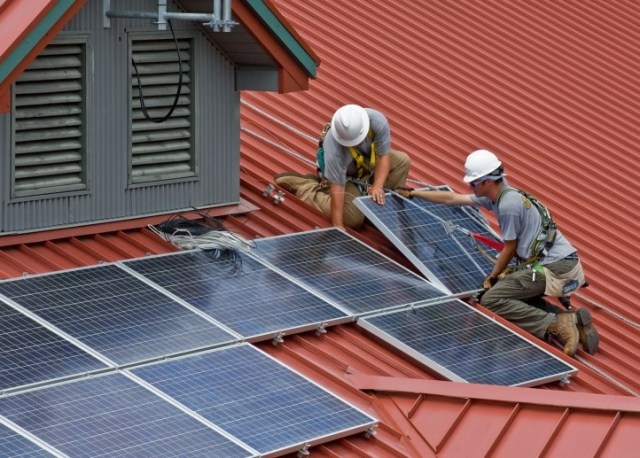Renewable energy is the energy that is harnessed from renewable resources, which are naturally replenished on human timescale, such as solar, wind, biomass, tidal waves and geothermal heat. Renewable energy systems are rapidly becoming more efficient and cheaper. The importance of solar energy was recognized as early as 1911 in the Scientific American article which said, “In the far, distant future, natural fuels have been exhausted, solar power will remain as the only means of existence of the human race.”
Renewable energy is important since it provide energy security, helping a nation reduce its dependence on imported energy carriers. It plays a significant role in addressing our energy needs by replacing foreign energy imports with clean and reliable home-grown electricity with the added bonus of attractive socio-economic developmental opportunities.
Renewable energy is an urgent need of the hour since the burning of coal for energy produces different types of particulate matter that contaminates the air. The pollutants make their way into the water cycle and fall on the ground as acid rain, which can destroy land and pollute large bodies of water.
Also, fossil fuels are a finite resource. Renewable energy is the generally better for the environment. In 2014, carbon dioxide accounted for over 80% of the green house gases emitted into the atmosphere.
Burning of coal for energy produces many different types of particular matter that pollute the air, the finest of these particles can be inhaled deeply and cause various respiratory health problems to people living around the power plant.
There are different types of renewable energy, including but not limited to:
- Solar Energy: relies on the nuclear fusion power from the core of the sun.
- Wind power: can be used to pump water or generate electricity, but requires extensive area coverage to produce significant amount of energy.
- Hydroelectric energy: this form uses the gravitational potential of elevated water that was lifted from the oceans by sunlight.
- Biomass energy: energy harnessed from materials with plant or animal origins.
- Hydrogen and fuel cells: hydrogen can be burned as a fuel, typically in vehicles, with only water as the combustion product.
Advantages of Renewable Energy
- Renewable energy is eco-friendly; it is a clean source of energy, it has low to zero carbon in the greenhouse gas emissions. Fossil fuels emit high level of greenhouse gases and carbon dioxide, which are greatly responsible for global warming.
- It is a renewable resource
- Renewable energy has stabilized global energy crisis; change up to renewable sources of energy means stability of energy prices across the glob. This is because the cost of installation of renewable energy technologies is stable, as opposed to fossil fuels experience increase and decrease of energy prices depending on the certain inflation and availability of the resource.
Disadvantages of Renewable Energy
- It is difficult to generate the quantities of electricity that are as large as those produced by traditional fossil fuels-based energy generators.
- Renewable energy can be unreliable; it depends on the weather (for e.g. sun and wind) to be able to harness any energy. In case atmospheric conditions are not good enough, renewable energy technologies would lack the ability to generate any electricity.
- Low-efficiency levels; renewable energy technologies are still significantly new to the market, meaning they still lack the much needed efficiency. This poses forecast problems and investors may shy away from investing their money for fear are not getting returns pretty quick.
You can use renewable energy at home by switching over to solar air conditioning, Tesla powerwall, solar water heating, solar oven and wind turbines.




2 thoughts on “A Handy Guide to Renewable Energy for Beginners”